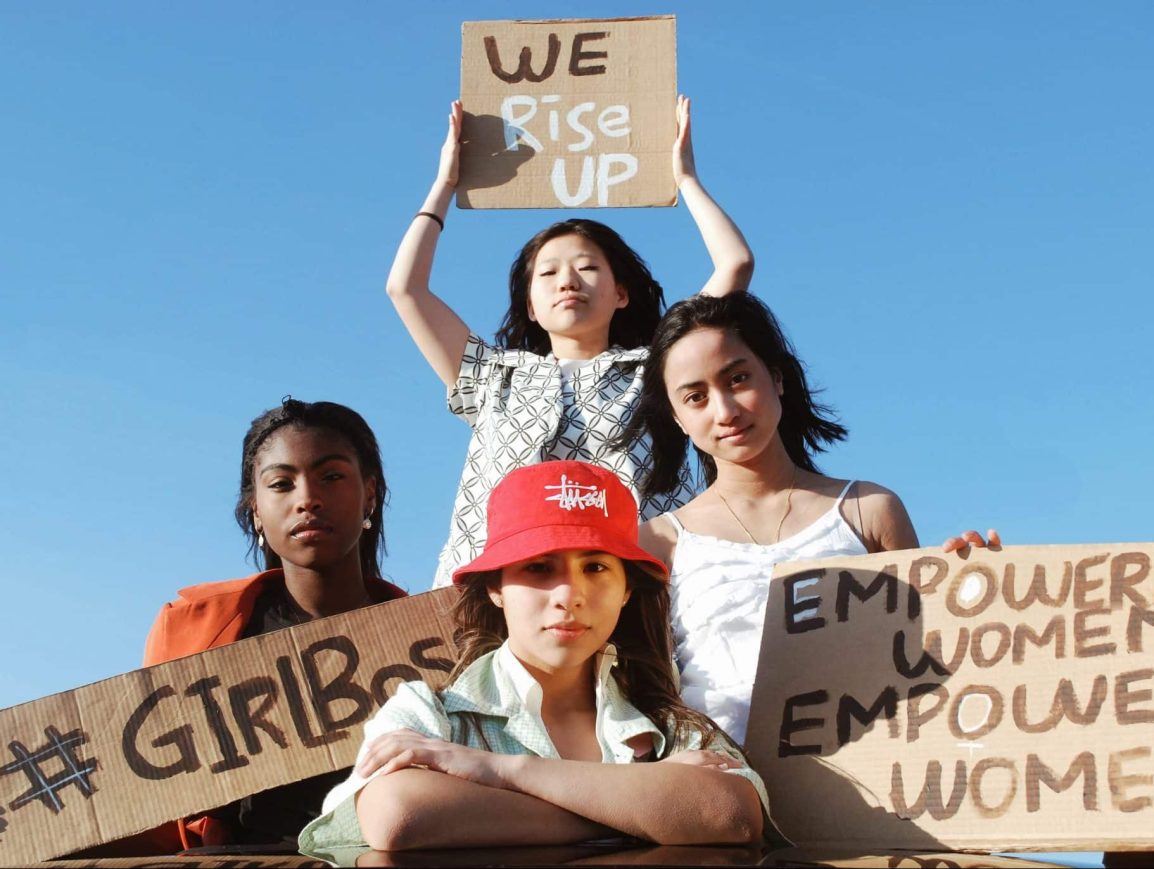As a young woman growing up in today’s world, I have spent a lot of time thinking and learning about feminism. Women’s liberation has been an ongoing theme of social movements for centuries. It still is today. The history of the fight for women’s rights is long and complex. We had the women’s suffrage movement in the early twentieth century (first-wave feminism). Then came the Women’s Liberation Movement (WML) in the 1960s-80s (second-wave feminism). Then there were was a reaction to the WLM beginning in the 1990s (third-wave feminism). Ideas surrounding the empowerment of women are constantly evolving.
One of the biggest aspects of the third wave of feminism is the idea of intersectional feminism.
Intersectional feminism means viewing women’s lives as being affected by many issues and sectors of society. This includes race, ethnicity, class, religion, gender, sexuality, and nationality. All of these things contribute to how women experience the world. This means that we cannot achieve equality for women by solely focusing on singular issues, like equal pay. Rather, this idea means that women will never achieve true equality until we overcome racism, poverty, homophobia and transphobia, and the many other forms of oppression and violence present in our society.
What good is having more white female CEOs if hundreds of thousands of women of color still live in poverty? What good is legalizing abortion if poor and working-class women still don’t have the means to access it? And then what good is criminalizing gender violence if the criminal justice system is still racist and sexist? As Cinzia Arruzza says in Feminism for the 99%: A Manifesto: “We have no interest in breaking the glass ceiling while leaving the vast majority to clean up the shards.”
Many different issues pertain to women.
The housing crisis in the United States in 2008 disproportionally affected women of color. They suffered the highest rates of eviction. This resulted in many women being forced to choose between homelessness and suffering in abusive relationships. Therefore, we as feminists must address economic issues and housing issues.
80 percent of the climate refugees in the world today are women. These people have been forced out of their homes because of extreme weather conditions and natural disasters caused by climate change. Therefore, we as feminists must address the climate crisis.
According to the CDC, Black women in the United States are three to four times more likely to die from pregnancy-related causes than white women. The maternal mortality rate in the US is the wort of all so-called “western” countries. Therefore, we as feminists must address healthcare.
The incarceration of women has grown at twice the pace of that of of men in recent decades. Much of this increase has been in local jails. A staggering 60 percent of women in local jails have not even been convicted of a crime. This rise in imprisonment also targets girls; 10% of girls in jail are there for minor offenses (such as running away and truancy). This is compared to only 3% of boys. Therefore, we as feminists must address mass incarceration and the rise in for-profit prisons.
These are just a few examples of the importance of intersectional feminism.
We cannot simply address equality for women as a singular issue. It relates to just about every other issue in the realm of social justice. Intersectional feminism is especially relevant right now. We are in the middle of Pride month and the massive protests surrounding Black Lives Matter and police brutality. Both of these issues are relevant to the fight for women’s rights. LGBTQIA+ rights is a feminist issue. Black Lives Matter is a feminist issue. In fact, every social movement that fights for justice is a feminist issue. As Arruzza states: “It is only by allying with such movements that we gain the power and vision to dismantle the social relations and the institutions that oppress us.”
Feminism for the 99%: A Manifesto by Cinzia Arruzza, Nancy Fraser, and Tithi Bhattacharya
heart.org: Why are black women at such high risk of dying from pregnancy complications?
prisonpolicy.org: Women’s Mass Incarceration: The Whole Pie 2019
ohiohumanities.org: Betty Friedan: The Three Waves of Feminism

